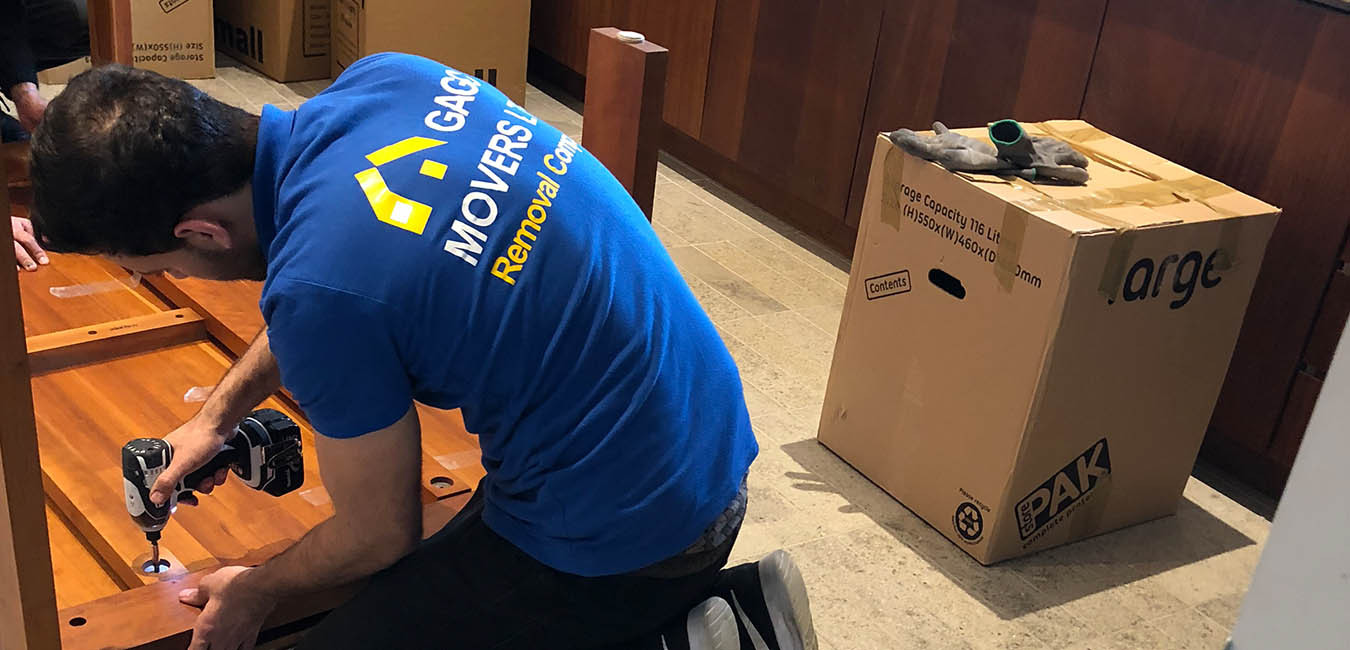
Packing your belongings requires some time. However, it is not always simple to estimate how much time you would need to arrange for a move. While most individuals estimate depending on the size of their house, numerous factors are involved, such as the number of belongings you have and the number of people assisting you. The information below will give you an idea of how much time you'll need to prepare for moving day, but nobody can give you a concrete answer. To be cautious, you might wish to round up your estimate by one or two days and get it arranged ahead of time.
Size of Your House
If you live in an apartment alone, it will take only take 1 to 2 days. But if you have two or three individuals living in a three-bedroom apartment, it will take 3-5 days to pack your goods.
As a start, set aside one day to pack for each room in your house. For example, packing should take one day if you live in a small apartment. Assume it will take at least three days if you are in a two-bedroom home, based on the size of the rooms. If it's your first time packing, give yourself an extra day or two, and don't forget to set aside at least one day for packing the garage. Think of each day as eight hours to figure out how many days there are. In other words, if you think packing for your move will take you three days, but if you only pack for four hours a day, you'll need to set aside six calendar days. However, think about how big your rooms are. Most of the time, it will take less time to pack up a three-bedroom, 1,200 sq. ft. home than a three-bedroom, 3,000-sq. ft. home. Even if the layout is the same, the bigger house probably has bigger rooms, bigger closets, and a lot more stuff.
Essential Household Items:
The more things you have, the longer it will take to pack them. Think about what's in each room according to the number of rooms. You might only need an hour or two to pack up a nearly empty guest room, but with all its cabinets, drawers, and shelves, the garage could take you several days to pack up. It depends on how much you need to bring.
How much time is required to pack for a move also depends on how you live and what you like to do? For instance, a minimalist with less stuff will have less to move than a sports memorabilia collector with much stuff. The collector will have more things to move, which need more care when you pack them.
Also, think about how many people live in your house. If two kids share a room, they probably have more stuff than one kid would. This idea works all over the house. For instance, if you live alone, you probably have much less dinnerware than a family of four. Lastly, if you're downsizing, moving will take longer than usual because you'll need to sell, give away, throw away, or find new homes for the things that won't fit your smaller space.

Your House Organization:
If you plan, it will take less time to move. For example, it will be much easier to pack a craft room with neatly packed containers of supplies than one full of scraps and unfinished projects. Find out what's in each room and how long you think it will take to organise through it.
For every disorganised space, add an additional day to your timeline. Have a room full of toys and clothes that make it difficult to get in and out? Schedule a full day to sort through stuff and eliminate anything that doesn't work or is broken.
Ways to Reduce the Time for Packing
These suggestions will help you reduce the time it takes you to pack your home, which is helpful whether you are pressed for time or simply want to spend a few additional hours with friends before you move.
-
Enough Packaging Material:
If you have to stop packing because you don't have any more tape or bubble wrap, you'll end up wasting time and losing momentum. Make sure you own all the materials required to complete the task before you begin. You need packing paper, moving blankets, plastic wrap, scissors, and at least one good marker in addition to the bubble wrap and tape you already have.
-
Use Specialised Packaging:
Wardrobe boxes, glass packs, and other specialised containers streamline the packing process by providing a dedicated space for fragile products. Glassware, such as drinking glasses, can be taken straight from the cupboard, wrapped in paper, and placed inside a glass pack box. However, you can take all the hangers and store garments in a wardrobe box.
-
Pack your One Room First:
Moving slowly from one space to another adds extra time to your journey. Instead, you should begin packing the house by focusing on the room that gets the least amount of traffic. Once you've finished the first room, it can serve as a holding place while packing the remaining stuff.
-
Make Piles-Things Will Be Easy to Organise:
Make three piles: things to give away, things to sell, and things to throw away. Put together two or three boxes and have your packing materials ready. Then, touch each thing only once, putting it in the right pile or box before moving on to the next thing.
-
Don’t Put Yourself in Hassle:
When you empty drawers, your workload doubles. Instead of leaving them on your desk or dresser, remove them and cover the openings with plastic wrap. The same holds for small filing cabinets. To ensure that they remain sealed throughout the home/office move, simply wrap the outside with plastic wrap.
